The music of Emperor is commonly misconceived by the mainstream metal media and certain YouTube clowns to be merely an atmospheric wall of sound or symphonic black metal orchestration engineered for superficial, surface level aesthetic appeal to an audience atypical for black metal. This is in fact not the case. In the Nightside Eclipse is just as perplexing to typical headbangers on first encounter as it was upon release in 1994. Mainstream audiences are even more flabbergasted and regard the record as a mere curiosity produced by those murderous church burners, preferring Emperor’s more rock-structured later work such as Anthems to the Welkin at Dusk, which abandoned the band’s signature riffing style and method in exchange for ones influenced by more stereotypical Norwegian B-listers such as Enslaved and Kvist. Emperor did eventually sell out, becoming technical guitar wank, rock-structured heavy metal after their rhythm guitarist Samoth and drummer Faust were imprisoned in 1994 and their songwriting influence subsequently waned. Yet In the Nightside Eclipse‘s hymns to Satan and Sauron remain as natural mutations of their metallic predecessors’ attempts to imitate horror scores and classical music’s overwhelming power of sublimity.
Emperor’s distinct riffing style was inspired by Celtic Frost and Bathory with the addition of short, scale-based melodic fills surgically implanted directly into the heart of power chord progressions. These melodic streams were actually much shorter than the long-form, tremolo-picked melodies of Emperor’s Norwegian contemporaries Mayhem and Immortal. This brevity allowed rhythm guitarist Samoth to shift and variate riffs either slowly or quickly over the course of the band’s compositions as they demanded similar to the slowly mutating genetic code of a replicating primitive life form. Marching to the ebb and flow of Faust‘s blasting perfected percussion, these high-gain viral riffs, however indistinct they become in the reverb drenched mix, are the bedrock and skeletal girders from which Emperor’s monstrous but wondrous to behold compositional architecture sprouts off lunartropically like cancerous tumors with humanesque facial features arising out of the once supple death metal flesh of predecessor group Thou Shalt Suffer. The only worthy comparison to this viral riffing in metal is that displayed on Demilich‘s Nespithe.
The rhythm section served as primal caveman throne-bearers marching the seat where the dark lord sat wherever they so pleased despite him falling from the heavens in an attempt to enlighten them. Everything the demonic procession came across, from horror scores to Norwegian folk to the classical compositions of Edvarg Grieg (the namesake of Grieg Hall where In the Nightside Eclipse was recorded by Pytten) was enslaved to their will. These elements were not forced to build Bruckner‘s sonic cathedrals but rather metal towers of dark sorcery shimmering in the moonlight to hail Dore’s pale rider as a pagan god. Necrolord‘s fitting cover painting of Minas Morgul communicated this perfectly.
Classical music was merely just one of a vast number of inspirations for the lead melodies of In the Nightside Eclipse. The synthesized keyboard and organ soundtracks to older horror movies along with krautrock’s use of mellotrons and choir organs in the seventies were others obviously utilized by Ihsahn. Keyboards play multi-tracked leads that could otherwise be played by another lead guitar similar in style to Iron Maiden‘s guitar synths on their progressive attempts Somewhere in Time and Seventh Son of a Seventh Son but without any of the New Wave of British Heavy Metal’s arena rock aesthetics and song structures. Emperor’s synthesized flourishes are perfectly harmonized with the early black metal influenced riffs riding beneath like stormy waves thrashing around ships sailing atop an icy, wine-dark winter sea.
The biggest inspiration for the atmosphere of Emperor’s compositions was a prior black metal band though: Master’s Hammer, whose riffing was more rooted in the speed metal of the eighties, served as a sort of missing link to the mystery. The classicism, synthesized choirs, and frenzied vocalist as a possessed, occultic bard praising Satan in a black mass were taken from Franta Storm. The varied vocalizations, both actual and synthesized, are just as effective on In the Nightside Eclipse in delivering Emperor’s musical points as they were Master’s Hammer’s on Ritual. This was a positive inspirational influence rather than the typical modern day “worship” or garage-bound posers rehashing superficial elements into pop-structured bar “metal”.
Emperor acted like J.R.R. Tolkien‘s fallen angelic antagonist Sauron with their inspirations. Like Sauron, Emperor corrupted and perverted creation into pandemonium. Despite the varying volume of the atmopsheric leads in the hacksaw mix of In the Nightside Eclipse, all of the musical elements that the “leads” are composed of follow the lead of the riffs as is proper in metal; they twist, turn, pus, progress and mutate at the riffs’ command. The music is enslaved to the will of the riffs wherever they wish to go as the One Ring bound the will of its wearers to that of Sauron.
Where there’s a whip, there’s a way. Despite whatever twists and turns of boundless dungeons the compositions found themselves seemingly lost in on In the Nightside Eclipse, profound discoveries of hidden passages and seemingly impossible melodic variations allowed an exit bathed in profound Promethean light at the end of the tunnel. The marauding war band of Satan-worshiping orcs concluded their never-equaled mutagenic metal campaigns in medieval Norway and Middle-Earth well and fittingly. Emperor made music most fit for the land of Mordor where the shadows lie.
Tags: bard faust, Black Metal, emperor, ihsahn, in the nightside eclipse, j.r.r. tolkien, music analysis, norway, Norwegian Black Metal, samoth, tolkien, tolkien metal
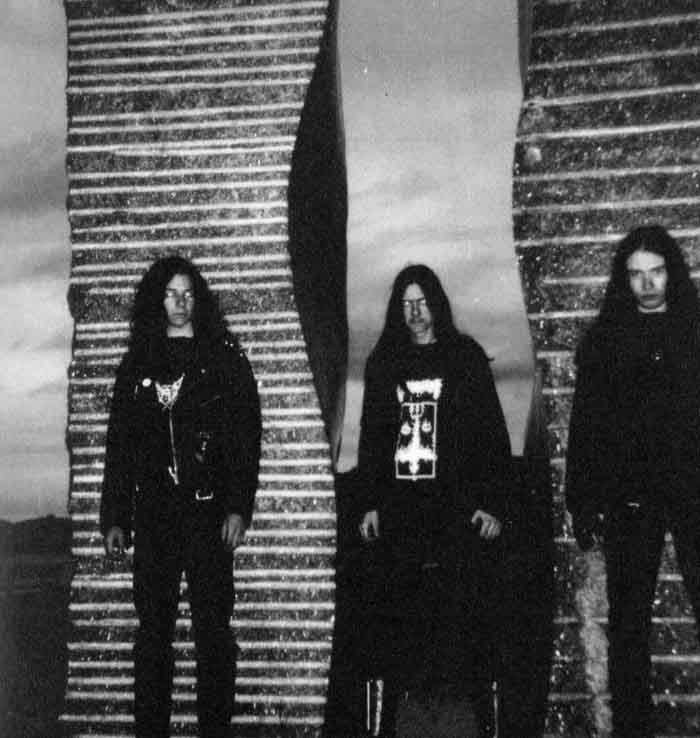
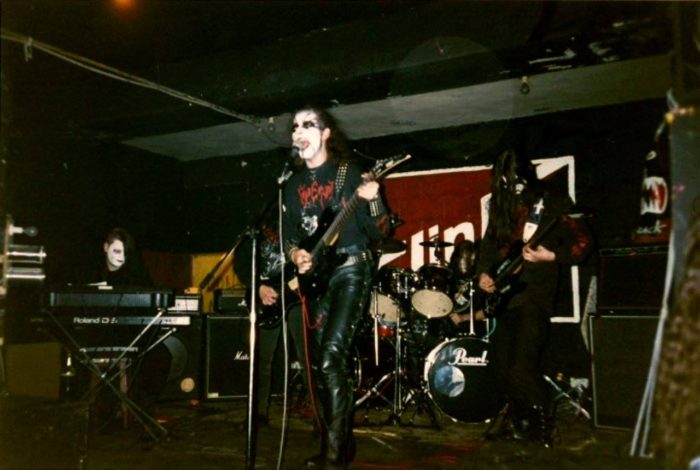
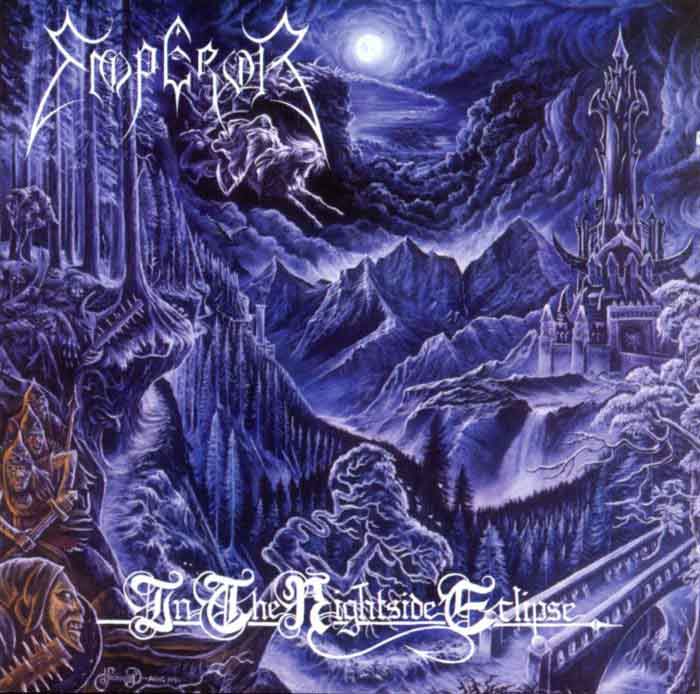
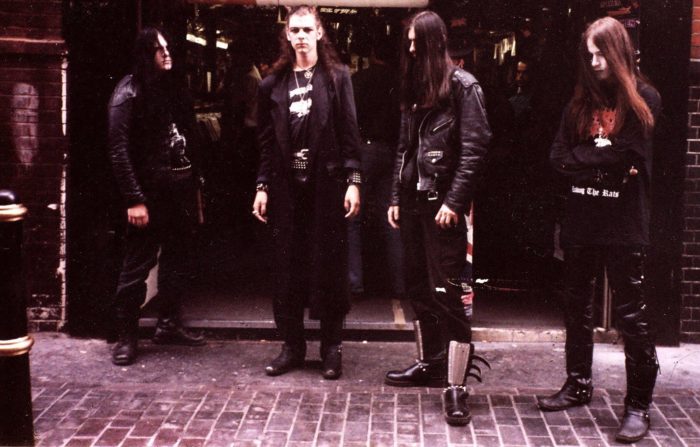
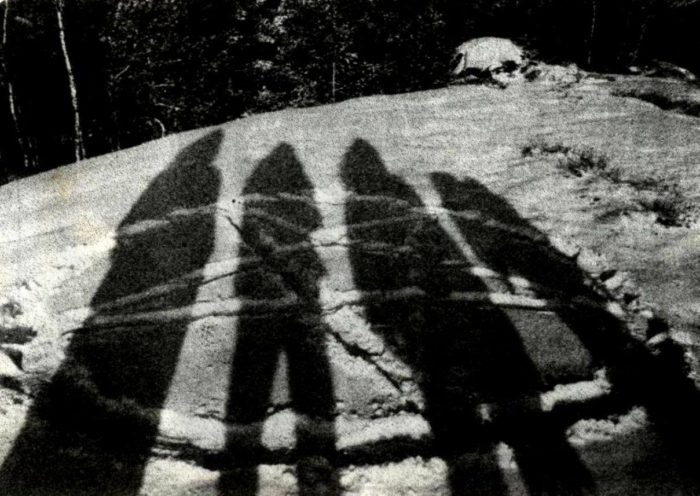


Doesn’t quite live up to Burzum or Darkthrone.
These bands are different branches of black metal.
Burzum, Darkthrone, owe more to the raw, madmen style of venom and bathory.
Emperor, Enslaved, owe more to the majestic soundscapes of Bathory’s hammerheart/twilight of the gods – era.
There’s tons of mid period Bathory in something like Burzum’s Det som engang var, though. Probably more than in Emperor. (The Snu Mikrokosmos… melody is just copped from Bathory’s Dies Iraes)
If we ignore aesthetics (keyboards, etc) Burzum and Emperor are about equally removed from the “rock songwriting” of the first wave of BM, but in different ways (maximalist vs. minimalist)
Darkthrone are an unusual case, they made great challenging music (until around Panzerfaust) while freely stealing boneheaded Celtic Frost riffs.
Anyway. All these “x > y” claims are way too easy for kids who weren’t even born when these albums were released to type on the internet. All that early 90s stuff was cut from the same fabric and none of it should be ignored.
Panzerfaust and Total Death were actually good, too, in my opinion.
In the Nightside Eclipse is the first Black Metal album when I was 15. Evil, magic, it just likes a puzzle. Although I can not understand much meaning about metal, I can 100 percent felt, there are some thing exist beyond the music.
Absolutely. This album, like all great music and especially metal music, feels “more real than life”. I firmly believe that it is as well. It is a vision of a true transcendent reality. This does not refer to the lyrics or other meaning encoded in the music, but a direct communication of “the divine”. This could be said to be experienced like a blinding light (Truth, Goodness, Beauty) of which a portion is refracted into consciousness via a prism (the album).
Why is a realm more congenial to human desires more real than real life?
Because Allahu Akhbar
The statement was that it feels more real, not that it is more real. The latter is obviously nonsense as real is not a quantifiable quality. One could perhaps substitute relevant for real here: It’s easy to imagine something which feels more relevant/ important than, say, the weekendly get-drunk-and-chase-hypothetical-sexual-opportunities routine so dear to so many people.
Why do you describe it thay way? Your question presumes a certain set of assumptions. I believe human souls are able to ultimately discern truth and beauty. Hence beauty would not be entirely subjective and would be accessible to all. The experience of powerful music evokes something in us, a longing, something half remembered but very familiar. I believe this is not simply stimulus -> response like eating a meal but a communication of something beyond mortal life.
I am not a huge fan, but in the late 1990s/2000’s and heard it a Megiddo member’s home, In the Nightside Eclipse and Anthems to the Welkin at Dusk, it was a breath of fresh air.
Same with early Enslaved.
These guys were taking the 1980’s Bathory spirit into the new millennium.
Immortal peaked with At The Heart Of Winter and everything I heard by them since is the same old stuff, but not as interesting.
Vikingligr Veldi is not B, but cool story
I was wearing my “Wrath of the Tyrant” hoodie at a restaurant and a fat middle aged woman came up to me to tell me that middle class moms support Emperor and that Varg is bad (I guess she had no clue Faust killed a Fag for soliciting gay sex to him)! I was speechless… I didn’t even know how to react. Something is very fucking wrong when middle aged soccer mom’s are uncontrollably vomiting support for Emperor or any black metal. What the fuck… Cool article.
That acutally sounds pretty dope — that this ‘middle-aged’ woman came in dropping names from black metal! You mean, like 35 years old?
No dude… Not dope… she literally said “Suburban Mom’s For Emperor!” (and basically, “Varg bad! Emperor good! Don’t listen to Burzum! Varg bad man!”). It was not as if she was some true old school fan. She was Like the most average, ugly, overweight soccer mom you can imagine and she comes up to me as if I’m another soccer mom and we’re at some bake sale for our kids’ soccer team and she wants to tell me how awesome my brownies are, but how Susan’s brownies are evil cause they have processed sugar in them. But little does she know that my brownies too, have processed sugar in them. So I just nod, smile, say nothing and pray she disappears quickly. Fuck I got carried away with that analogy… Point being, she clearly has no clue what black metal is about and was only trying to appear interesting and edgy to a young person such as myself because she is dissatisfied with the way her life turned out, so the only way she can think to turn back the clock is to vicariously experience youth by accosting young people who are trying to enjoy their fucking meal in piece with other people they actually care about and want to talk to. To provide a bit more context, this took place in Portland, Oregon, where I currently reside (I know… I need to get the fuck out of here. If I see one more fucking “Black Lives Matter” sign in the front yard of some Mexican/European interracial couple’s house, I’m gonna murder the 5 actual niggers who live here. FUCK…).
Uh… you actually use the word ‘nigger’? That’s raw and passe, dude.
P.S. Portland is the whitest US city of 400K+ population, so you should be fine.
Sauron is not a »fallen, angelic antagonist«: In the beginning, there was the choir of the Ainur singing as directed by Eru. Melkor, the most powerful of the Ainur, repeatedly disrupted the music by injecting themes of his own design. There were two groups of Ainur, the Valar and the lesser Maiar. After the creation of Arda, both “went to the world” to prepare it for the arrival of Eru’s other children (men and elves). Every Valar had a couple of Maiars serving him. Melkor, later known as Morgoth, who wanted to rule the world alone, ensnared some of the Maiar to follow him, Sauron being among them. After the defeat of Morgoth at the end of the first age, the Maiar who had followed him were scattered and hiding.
Sauron reappears in the second age where he’s an evil rule in the east of middle earth. He’s forced to surrender to the invading Numenorians and is imprisoned on Numenor, the island between middle earth proper and Valinor, the home of the Valar, which was granted to the Edain for the help in overpowering Morgoth. Over time, Sauron manages to ensnare the Numenorian kings and make them feel jealous of the Valar until the last (and most powerful) of them, Ar-Pharazon, sails westward to Valinor, what the Valar had prohibited, to gain immortality. This ends with Numenor sinking into the sea and Sauron being dragged down by the maelstrom. He manages to escape from that as well but loses the ability to appear in a form pleasant to other beings.
[mostly written from memory]
Sauron did fall. He was actually originally in the service of a different Maia and then, as you said, was ensnared by Melkor. Calm down, think, stop lashing out with essay-long diatribes parting from your misunderstanding.
Calm down, think, stop lashing out with essay-long diatribes parting from your misunderstanding.
There’s something you should really try to get into the arrangement of bones sitting on your neck: People don’t undertake the effort of writing a two-paragraph condensed version of “middle-earth mythology” ‘in a fit of mad rage’ to ‘lash out at someone’ but because they love this stuff and (somewhat forlornly) hope others might like it, too.
Sauron is not a Lucifer-style ‘fallen angel’, especially not a beautiful one, as depicted by Dore (read of that, didn’t see it), but a celestial underling who betted on the wrong horse, namely, the Lucifer-style being in the Tolkien universe, Melkor/ Morgoth (even this is a bad analogy as Tolkien-mythology is essentially non-christian). He’s the same kind of creature as the Balrogs or the wizards.
Bruce Charlton’s take on it seems closest to a literary reading: in Tolkien, evil is a force like hubris, solipsism or selling out. Sauron is consumed by it; Saruman is the interesting bourgeois character who gives in to it.
One could argue that there’s actually no such thing as ‘good’ and ‘evil’ in middle-earth: Its conflicts are based on aesthetics and not moral. There’s nature, especially forests, which are a source of beauty and ancient wisdom but not necessarily harmless, as represented by the old forest/ Old Man Willow. There are beautiful, noble beings who value the beautiful parts of nature and create often glorious beautiful things. They’re also associated with natural light. Their opponents are ugly, not noble and destroy nature and beautiful things in order to create ugly ones, either because they lack the capability of experiencing beauty at all (the orcs) or to furter their selfish plans. They’re associated with darkness, foul odours, degenerated nature (swamps) and manufacturing plants. There are also lesser opponents, weak, scheming cowards (Gollum, Grima) who act on behalf of some more powerful ‘antagonist being’, their physical and character deficienies making them natural outcasts of the heroic societies they seemingly belong to.
People are wont to call the ‘beautiful’ actors ‘good’ despite they’re not really good: Eg, Orcs are living beings and slaying them just because they’re Orcs is certainly not ‘good’ in the Christian sense. Likewise, Saruman can be regarded as evil but the Orcs he employs in his factories and houses and feeds until they’re all killed by the Ents would probably have a different opinion on that.
Aside: Tolkien also used ‘Orc’ as description of certain groups of his countrymen whose ‘low’ tastes made them incapable of understanding and valueing ‘beauty’ and ‘nobility’.
Sauron is directly and unambiguously analogous to a fallen angel. That is the point in fact. It is a “theomythology”. This exposition was egregious even for your high standards of uncanny valley AI thinking.
I’d like to submit this as ‘exhibit A’ for “How people are prevented from seeing what’s in front of their nose by their prejudices about what they’re going to see”. I’m no more associated with silicon valley or ‘anything AI’ than Sauron is the same as the Christian devil.
Serious question, do you have autism? You seem to have entirely misinterpreted my reply and thereby proved its point. The things you say strike me as being “off”. Am I just shooting in the dark here? Help me figure you out.
Replying to this question again: I’m probably an autist (meaning “it seems to but I didn’t get that diagnosed and I’m not planning to”).
I don’t quite see how this would change the similarities between the Christian devil and Sauron are very superifical (he’s more powerful than ordinary humans and seems to be a ‘scary’ not-good-guy) and dwarfed by the differences, starting with Sauron being a minor celestial being and not rebelling against the ‘the creator’, only joining (as one of many) the Valar who (sort-of) rebelled: This already breaks down here as Melkor didn’t oppose anything, he just added his own themes to Eru’s music, thus causing discord in the signing of the Ainur. Eru’s reaction to that is not disciplinary, he just comes up with a new theme all Ainur (including Melkor) again join.
Later on Arda/ Earth, Melkor is also not an outcast, just someone who refuse to cooperate with the other Valars who are his equals despite is the most powerful of them.
Okay thank you for your candor. I will keep it in mind for future interactions. As for the rest of the post I will attempt a very short reply. Melkor was a being of high status, analogous to Lucifer. Similar to Lucifer, the primary sin of Melkor was one of pride. Look at the similarities in terms of the intended communication, other superficial details matter less. Like Lucifer’s fall was accompanied by the fall of lesser angels in the host, so Sauron among others fell due to Melkor. Like Lucifer gained the name Satan after his fall so Melkor became Morgoth Bauglir. Like Satan’s fall led to a war in heaven so Morgoth’s fall led to about the same.
In absolutely literal terms of course Sauron is not a fallen angel, he is not an angel. In allegorical terms the connection is obvious, and not to a minor degree either. Most people would have no confusion or hesitation in establishing the connection.
Except spiritual power in Arda is expressed materially and can’t really be replenished so Morgoth diminished himself naturally by use of supernatural powers. Incarnated beings can’t heal their bodies easily in Middle-Earth without further diminishing their power so Morgoth eventually became a small giant with permanently burned hands, a limp (from Fingolfin), and scarred face (from one of the eagles). He “died” when the Valar physically chopped his legs off below the knee, branded the stumps, carted him back to Valinor, beheaded him, and tossed his body into outer space.
Sauron was a blackened drowned corpse with nine fingers and a gaping, mortal chest wound that rendered him lame from Gil-galad. The spiritual power he gave to the Ring was the only thing keeping his mortal body alive. Otherwise, he would have gone out like Saruman.
You’re interpreting this from a Christian background but that’s – as I already wrote – an idea which never crossed my mind because the dissimilarities are many more, starting with the complete lack of the usual, Christian ethos of solidarity with the persistently powerless, peace, forgiveness, love etc in all of middle-earth. One could imagine Christianty as a creed of the Orcs-slaves of the dark lord du jour but all other beings are painted as heroically independent and both willing to and capable of ‘performing great deeds’ [of violence] in order to maintain or restore their freedom.
Aside: As far as I know, Satan is derived from an old Hebrew word meaning ‘attorney general’ (no pun intended) and his original role was that of the prosecutor of souls after the world ended. This would explain is role in the book of Job.
fuck yeah dude this was on anthems to the welkin at dusk wasn’t it? so good the way they expressed my pensive longing for lotr to fucking end because it’s even less readable than the bible and has a gayer fan club
That’s mostly from the Silmarrillion.
Tolkien’s work is incredibly stuffy, English, gay, Christian*, and to be avoided altogether. Ironic that the black metal musicians that drew influence from LoTR identified with the EVIL forces, who of course represented mudmen or mixed-race or just non-Europeans.
* Evil in Tolkien’s world is a tangible force, another fantastic workaround to avoid writing about any complex or ambiguous conflict, subverting the reality that all evil is intrinsically tied to the human. His mythology is just a young-adult version of the Narnia series – slightly-more obfuscated Biblical analogies.
Tolkien is not metal.
The main point is not that Tolkien or his ‘work’ is metal, it is that his work influenced metal from its infancy in numerous ways. The same could be said for ‘orthodox’ Christian spirituality, too. Without these, metal just wouldn’t have originated as it did.
As an aside, I’d suggest that this fact hints at a transcendent unity behind the human manifestations of what is spiritual…
Of course, Christianity had to exist for it to be rebelled against.
His mythology is just a young-adult version of the Narnia series – slightly-more obfuscated Biblical analogies./em>
The ‘biblical analogies’ are your’s. The idea of a Christian interpretation of anything Tolkien wrote never crossed my mind and I’m amazed that anyone could come up with something so completely absurd. On would usually rather think of the Greek polytheism of the Iliad and Odyssee, especially considering that Homer decidedly glorifies heroically conducted warfare, also the central motive of Tolkien. Last time I looked, Christianty was (nominally) all about “love thy neighbour”, “do good unto them that hate you” and stuff like that.
There’s no “forgiveness” in Tolkien at all. Eg, Saruman is presented with various opportunities to stop walking down his chosen path but as he always denies, he ends up being murdered by Grima after erecting a dictatorship in the Shire with the intent to devastate it to hurt the Hobbits who were instrumental in thwarting his plans.
Likewise, there’a also no afterlive in paradise or a concept of sins getting punished: Eru/ Illuvater creates Arda, dumps various kinds of creatures on it and then vanishes. These creatures have to overcome their ‘evil’ antagonists on their own or perish in the attempt. The Noldorian elves wage war against Morgoth because Feanor wants to recover the Silmaril. This ends in total defeat and destruction of the eleven kingdoms. The Valar ultimatively intervene but it takes a combined army of them, elves and humans to overpower Morgoth. The dead remain dead and the elves are also not really ‘good’ in a Christian sense: They’re powerful, beautiful but subject to vanity and hybris because of that, causing them to architect their own downfall involuntarily.
NB: I don’t think I ever saw any of the movies completely because these are indeed quite terrible (but I never watch movies or TV, anyway).
Dawg you shouldn’t have put all that in italics.
Stormbringer, that’s the most interesting thing I’ve read in this thread, in its iconoclasm.
I haven’t read Tolkien.
Can you recommend some other works, which more properly embody metal?
H.P. Lovecraft and Robert E. Howard.
Ooh, I’ve read Lovecraft but not heard of Howard.
Hopefully this decade heralds the dawn of “Howardian metal”.
Karl Edward Wagner’s Kane deserves to be mentioned here as well and obviously Michael Moorcock’s Elric. The num de plume of the initiator of this subthread should have suggested this. OTOH, heroic fantasy is a sub-genre of fantasy and Tolkien an exponent of a different sub-genre, rendering the comparison a bit useless.
And then, there’s more to metal than powermetal :->.
Howard (creator of Conan) and Lovecraft were friends and collaborators. Their two universes intersect in vague ways.
Kind of missing the point here. Metal is a certain feeling (heavy) before it is a set of ideas (hence Romantic). Tolkien and great metal are both “more real than life itself”. Indeed their link is so obvious to me that it is not even in contention if Tolkien is metal.
It is funny how people make fun of the idea of evil being real as something passe, when any art that deeply touches the human experience validates the reality of good and evil. Tolkien did not just try to fit Christianity into a fantasy mold but created a picture of human mythology. Metal creators recognized the resonance of his vision, which is why his influence pervades metal. They saw something that deeply touched them.
lol
Ignore this idiot if you value beauty in art.
Daniel, what is ‘viral riffing’?
Put another way: what makes a riff ‘viral’?
Nice article. Emperor deserves this mention. Hopefully we will see more venturing into specifics of this great album. Classics of underground metal have enough in them to fill a book or two. Decoding it is the difficult part: it takes time, study, effort, familiarity, etc…
David, now that Trump is President, will you be deported to Guadalajara?
I never left Guadalajara for McDonaldsland. :)
Did Emperor actually “sell out,” or just become bad and more popular at the same time? Could be a minute distinction in terminology.
In The Nightside Eclipse was definitely my first extreme/underground metal album. Much hallowed and deserving of any and all praise.
Valid question, even if the results are the same.
A truly faustian music. Along with Transilvanian Hunger it is a fullest manifestation of that spirit.
I like in the nightside eclipse, but I prefer the self titled Emperor EP and the wrath of the tyrant demo. Early Emperor is more than respectable, but Darkthrone, Mayhem, Burzum and Immortal were better. Master’s Hammer was also better. Anthems and anything Emperor did afterwards is garbage.